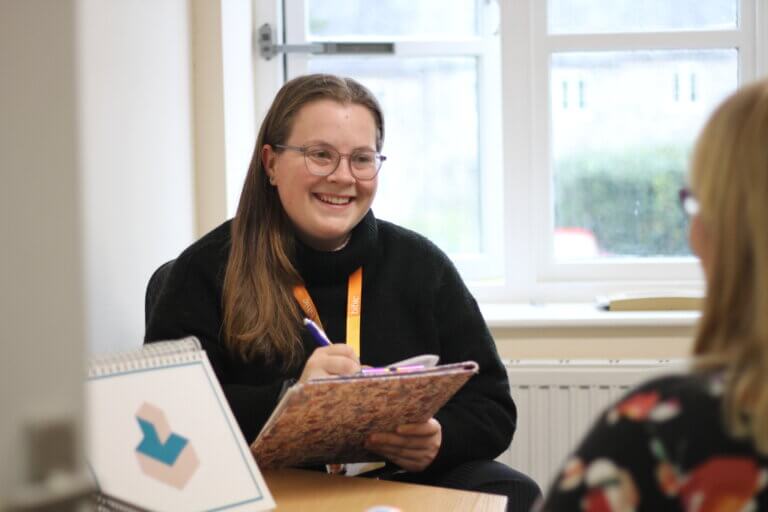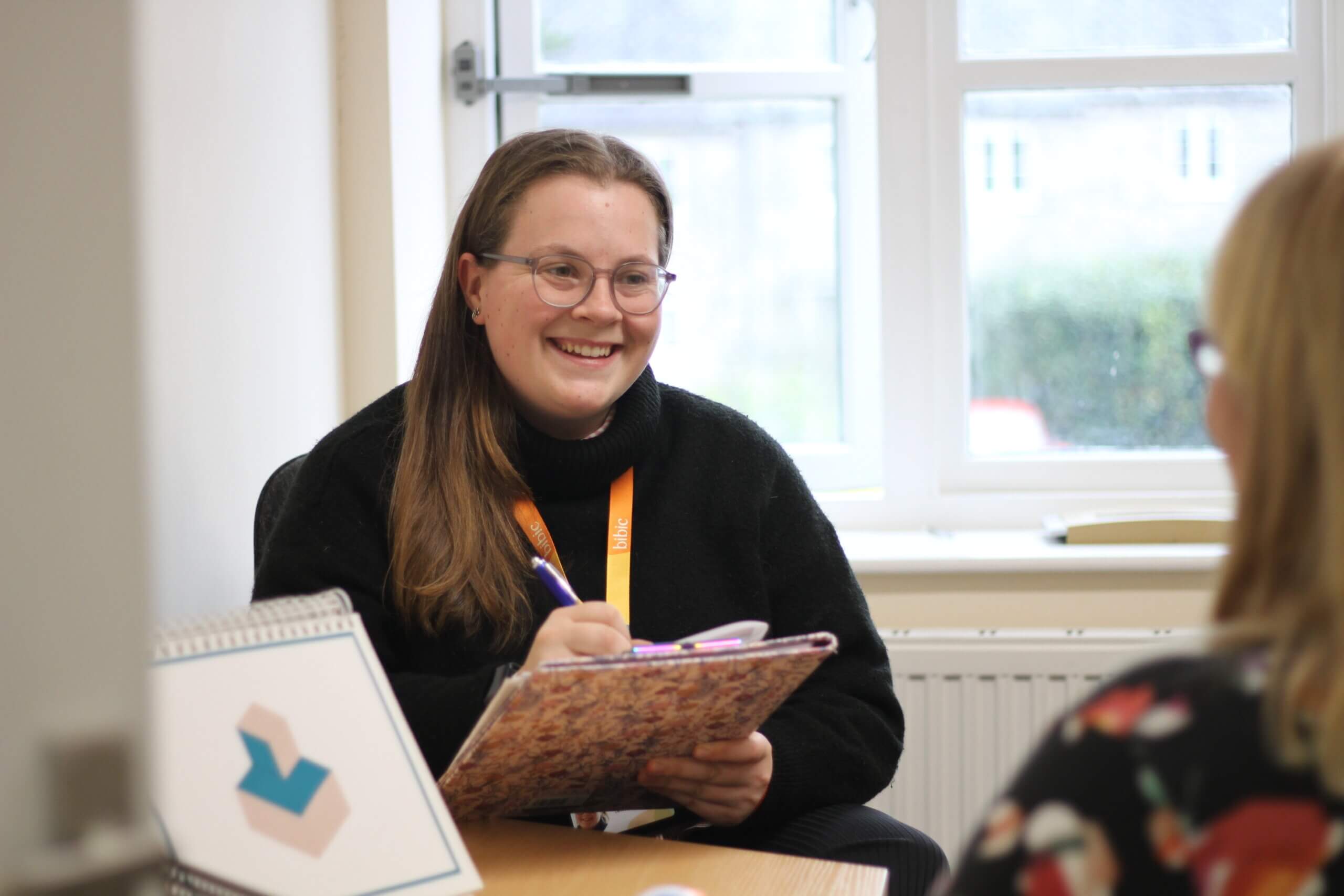So, imagine you’re at a social gathering and you get asked that age old question. What does a typical day look like in your job?
Well, the answer to that is a complicated one, as no day is the same when you are a therapist at bibic and that, quite honestly, is why it is one of the best jobs.
Being a therapist is more than a job, it’s a calling. All of us care so much about our families, children and young adults we help. So, when you walk through the door and are welcomed in, it really is a genuine smile that greets you. We can’t wait to get to know you as a family and the individual we are specifically assessing, not for the numbers or statistics but for who they really are, finding real ways to help.
All good conversations start with a cuppa, which is why we love the family spaces in our therapy suite, having the what sounds frightfully serious, ‘history session’ is really the way that we can all get to know each other. This helps us to find the best activities to do with who we are seeing, believe it or not we have around 35 tests that we can choose from to use! So, whilst the family are having snack time and playing, we are working out what are the best activities to help us understand that individual’s brain better. Of course, we also have to get other essential therapist items – FIDDLE TOYS! I mean visual timetables, post-it notes, stop watches and other visual aids…
The rest of the day is spent doing the assessment, again something that sounds very official but what we all love is play! Breaks are an essential part of what we do as well as thinking on our feet. So, you may find your therapist; lying on the floor, hiding, playing cars, using the scooter or any other sort of shenanigans to work with the child/individual we are seeing. Stress is not welcome in our methodology and we want families to feel at home in our space knowing that no judgement is coming their way.
After our wonderful families have finished on the first day and are headed home, we are busy squirreling away behind the scenes. Marking tests, putting them into the context of who we have seen to make sense of the struggles they are presenting with, preparing a super bespoke therapy plan, talking it through as a team, because one thing we always do well is help each other. So, when you speak to us the next day, know it’s not just who is sat in front of you who has thought things through and how to help, but a whole team is surrounding you wanting to help and cheer you on.
We talk through what we have discovered with the family, and yes sometimes there are tears, that’s ok, it’s not an easy journey that families have been on when they come to see us. Then, after another cup of tea and a snack, we get to talk through all of the ideas that we have and what we think will help. It’s an intense day for all involved, but the biggest reward is when you see a family leaving through the archway knowing that their load has got a little lighter with the help they are searching for.
And when you leave know that what we do doesn’t stop there. The next day we are at our computers writing reports, these are so important for families and can help them access support in the future. Once they are written they then go through a thorough checking process for quality assurance, making sure no cheeky typos pop up so that only the best is going to our families. Our support is on hand for families for the next six months, so when they have a call from school, or need to talk strategies through with us we are here.
Being a therapist also means that you are involved in many areas of the charity; helping the amazing fundraising team, whether that be holding buckets or finding information for bid writing; working with the marketing gang to make sure your great stories are out there, as well as our help through events like our live Q & A’s; being on hand for the family services team to work out what is the best assessment for you. Other key skills a therapist must have for the day-to-day work life include: an excellent ability to put flat pack toys together, cleaning toys, answering the phone, mastering the photocopier and making each other laugh.
So, now you know why the question ‘what does a typical day look like for you?’ is so tricky.
To learn more about what we do and our services click here


